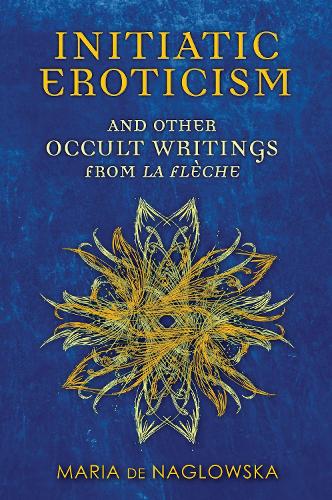
Initiatic Eroticism: and Other Occult Writings from La Flche
(Paperback)
Publishing Details
Initiatic Eroticism: and Other Occult Writings from La Flche
By (Author) Maria De Naglowska
Introduction and notes by Donald Traxler
Translated by Donald Traxler
Inner Traditions Bear and Company
Inner Traditions Bear and Company
2nd September 2013
United States
Classifications
General
Non Fiction
130
Physical Properties
Paperback
256
Width 152mm, Height 229mm, Spine 18mm
435g
Description
*Introduces Naglowska's advanced occult teachings on the Third Term of the Trinity and the spiritually transformative power of sex *Includes two never-before-published essays by Julius Evola *Contains the complete collection of articles from all 20 issues, from October 1930 to January 1935 From October 1930 to January 1935, Maria de Naglowska - Russian mystic, esoteric high priestess and self-styled 'Satanic Woman' of 1930s Paris - published 20 issues of her newspaper, La Fleche, which she sold on the streets of Montparnasse and by mail-order subscription. Bought by many, now famous, people, including Andre Breton and other Surrealists, the newspaper served as an introduction to Naglowska's revolutionary religious system called the Third Term of the Trinity, which considered the Holy Spirit of Christianity to be feminine and taught the importance of sex for the upliftment of humanity. Available for the first time in English, this complete anthology of articles from all 20 issues of La Fleche includes an introduction and notes by translator Donald Traxler, who contextualises Naglowska's life and teachings within the larger occult systems of the time. He explains how most of the articles were written by Naglowska herself, often under pseudonyms because of the controversial nature of her ideas. In addition to writings on sacred sexuality and religious philosophy, this collection includes essays on feminism and on other esoteric thinkers, such as Rene Guenon and Krishnamurti, as well as two never-before-published essays by Julius Evola.
Author Bio
Maria de Naglowska (1883 - 1936) was a Russian occultist, mystic and founder of the Brotherhood of the Golden Arrow, whose conferences in Paris in the 1930s were attended by many now famous avant-garde and notorious writers and artists, such as Julius Evola, Man Ray and Andre Breton.
